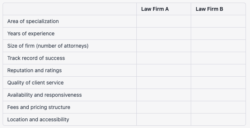Privacy Breach: Variety.com Allegedly Shares Subscriber Data
How safe is your personal data in the digital era? This article delves into the accusations leveled against Variety.com, owned by Penske Media Corporation, for alleged privacy infringements. The media giant purportedly tracked user activities, shared viewing data with Facebook without consent, potentially violating the federal Video Privacy Protection Act. We navigate the ongoing mass arbitration process, legal implications, and the possible compensation for those affected, providing a comprehensive understanding of this alleged data breach.

Variety.com Data Breach Overview
While it remains unconfirmed, Penske Media Corporation, the parent company of Variety.com, is allegedly involved in a significant privacy breach, suspected of using a tracking tool to record and share the video-watching activities of its subscribers and newsletter recipients with Facebook, without obtaining informed consent. The Variety.com data breach implications are vast, potentially affecting thousands of users whose personal viewing habits may have been unlawfully shared. This incident has serious repercussions on user trust and privacy, casting a shadow over the company's data handling practices. It also raises broader concerns about the safety of user data online. Such an incident underscores the need for stringent data protection measures and the importance of transparency in data sharing practices.
Alleged Tracking Tool Usage
In the alleged privacy breach, Penske Media Corporation is suspected of utilizing a tracking tool known as the Meta pixel on Variety.com. This tool, while seemingly innocuous, has serious implications for data privacy.
- Tracking tool implications: The Meta pixel allegedly collects Variety.com subscribers' data, specifically their video-watching habits. This information can provide detailed insights into user behavior, offering valuable data for targeted advertising.
- Data sharing: Penske Media Corporation is accused of sharing this collected data with Facebook, thus expanding the reach of the potential privacy violation.
- Data privacy concerns: Unauthorized access to personal data raises serious concerns, especially considering the potential for misuse of this data.
- Potential legal implications: The act of sharing user data without explicit consent may infringe on privacy laws, exposing Penske Media Corporation to potential legal action.
Role of Meta Pixel
The Meta pixel, a tracking tool suspected of use by PMC on Variety.com, plays a crucial role in this alleged privacy breach. This tool is designed to record user activity, compiling data which can subsequently be shared with third parties such as Facebook. The Impact on User Privacy is significant as the Role of Meta pixel facilitates the potential distribution of personal information without informed consent, contravening privacy norms.
| Role of Meta Pixel | Impact on User Privacy |
|---|---|
| Track user activity on Variety.com | Personal data shared without informed consent |
| Facilitates data sharing with third parties | Breach of privacy norms |
| Used for targeted advertising | Invasion of user privacy through personalized ads |
This tool's misuse underscores the urgent need for greater transparency in data handling practices.
Suspected Data Sharing Details
Despite the role of the Meta pixel in tracking user activity, concerns arise over the specifics of the suspected data sharing between Variety.com and Facebook. The following points shed light on the alleged data breach:
- Variety.com, owned by Penske Media Corporation (PMC), allegedly used Meta pixel to track and record user video-viewing habits.
- This data was reportedly shared with Facebook without obtaining user consent, a requirement under law.
- The shared information likely included Facebook IDs and specifics of video content viewed.
- This data sharing, if confirmed, could have potential legal consequences, including violation of the Video Privacy Protection Act.
This incident underlines the importance of transparency and adherence to user consent requirements in data collection and sharing practices.
Potential VPPA Violation
Following the alleged data-sharing practices, it is crucial to delve into the potential violation of the Video Privacy Protection Act (VPPA) by Penske Media Corporation (PMC). The VPPA prohibits the disclosure of personally identifiable information relating to viewers' consumption of video-related services. It appears that PMC may have violated this act by allegedly sharing user data with third parties without obtaining informed consent. This raises serious data privacy concerns and could have potential legal implications. If found guilty, PMC could face hefty penalties and damage claims. The case also underscores the importance of businesses respecting customers' data privacy rights and following all applicable laws and regulations to avoid potential violations and the ensuing legal troubles.
Understanding Mass Arbitration
Amid these allegations of a potential VPPA violation, it is imperative to comprehend the concept of mass arbitration, a legal process now being pursued by affected Variety.com subscribers and newsletter recipients.
- Mass arbitration is a legal recourse that allows a large group to collectively seek redress.
This has several implications:
- Pros and Cons: While it provides a platform for collective action, the process can be lengthy and outcomes are not guaranteed.
- Legal implications: This method bypasses the need for a class-action lawsuit, adhering to Variety.com's terms of service.
- Privacy rights debate: This case highlights the ongoing tension between data sharing for business purposes and individual privacy rights.
- Consumer protection measures: Mass arbitration is a tool for consumers to assert their rights and seek compensation for potential violations.
Class Action Waiver Clause
One critical aspect of the ongoing legal proceedings against Variety.com is the class action waiver clause included in the website's terms of service. This clause essentially restricts subscribers from initiating or joining a class action lawsuit against the company.
The implications of the class action waiver are significant. It forces aggrieved parties to seek redress individually, often through arbitration, rather than collectively. This can be daunting and financially burdensome for some, thereby limiting access to justice. However, class action waiver alternatives, such as mass arbitration, are emerging as a viable and effective recourse for those affected.
| Class Action Waiver | Implications |
|---|---|
| Restricts class actions | Limits access to justice |
| Promotes individual redress | Daunting and financially burdensome |
| Alternatives available | Mass arbitration provides collective recourse |
Mass Arbitration Versus Lawsuit
While the class action waiver clause in Variety.com's terms of service restricts collective lawsuits, it has paved the way for an alternative method of collective redress known as mass arbitration, which differs significantly from traditional lawsuits.
Despite the differences, there are several pros and cons, as well as legal implications to consider:
- Pros: Mass arbitration can be faster and more efficient, potentially leading to individualized settlements.
- Cons: The decentralized nature of mass arbitration can lead to inconsistent rulings.
- Legal implications: Companies might be exposed to substantial liability if they lose multiple arbitrations.
- Potential changes: This approach could reshape the landscape of consumer litigation by encouraging other companies to reconsider their arbitration clauses.
Ultimately, the success of mass arbitration in this case could impact future privacy breach cases.
The Cost of Arbitration
In assessing the potential financial implications of this mass arbitration against PMC, it's crucial to understand that for affected subscribers and recipients, there are no upfront costs involved. The advantages of mass arbitration include its cost-effectiveness and potential for substantial compensation, making it a viable legal strategy in such privacy breach cases. Signing up for the action also entails no financial risk to the claimants, as attorneys' fees are contingent upon winning the claim. However, potential risks of signing up for the action may include uncertainty concerning the outcome, as there's no guaranteed compensation. Thus, while arbitration provides an accessible and collective avenue for legal redress, the variability of the arbitration results underscores the need for careful consideration.
Estimating Potential Compensation
Frequently, in the realm of mass arbitration cases such as this, the potential compensation is a key point of consideration for affected individuals. Calculating compensation can be complex, as it needs to take into account both the nature and scale of the privacy breach.
- The legal implications of Variety.com's alleged data sharing practices could influence the amount of compensation.
- Under the Video Privacy Protection Act, individuals may be entitled to $2,500 if their rights were violated.
- The final compensation will depend on the outcome of legal proceedings.
- Though the potential compensation is a draw, it is important to remember that the primary aim is to uphold privacy rights.
The final figure, while uncertain, could provide substantial redress for the alleged breach of privacy.
VPPA Rights Violation Compensation
Potential compensation for the alleged violation of VPPA rights forms a significant aspect of the ongoing investigation into Variety.com's data sharing practices. If found guilty, Variety.com could be liable for considerable damages due to the vppa rights violation consequences. The privacy breach impact is far-reaching, affecting subscriber trust and potentially infringing upon federal laws. Under the Video Privacy Protection Act (VPPA), if a user's rights are violated, they may be entitled to $2,500. However, the final compensation amount will be contingent on the outcome of the legal proceedings. It is crucial to understand that VPPA rights violation compensation is not guaranteed but forms a significant part of understanding the potential financial implications of this alleged privacy breach.
Process for Taking Action
The first step for affected Variety.com subscribers and newsletter recipients in taking action involves signing up for mass arbitration through a secure online form. This process is crucial in joining the action and protecting privacy rights.
The process is as follows:
- Visit the designated website to fill out the arbitration form.
- Provide necessary personal details and any relevant information regarding your interaction with Variety.com.
- Submit the form and await further communication from the legal team handling the case.
- Stay updated on the progress of the case, which may involve further verification or evidence submission.
Through this process, affected individuals can actively participate in seeking justice against alleged privacy breaches and potential violations of the Video Privacy Protection Act.
The Role of lawsuitlegit.com
In the midst of this alleged privacy breach by Variety.com, lawsuitlegit.com plays a crucial role in facilitating the mass arbitration process. As a platform dedicated to consumers' rights, it aids in coordinating efforts between affected individuals and the legal team. The benefits of joining the action include the potential for compensation and a strengthened stand against privacy violations.
The role of attorneys in the investigation is paramount. They are tasked with gathering evidence, identifying potential violations, and representing the interests of the subscribers in the arbitration proceedings. Their payment is contingent on winning the claim, ensuring their dedication to achieving a favorable outcome. Thus, through lawsuitlegit.com, victims stand a better chance of achieving justice.
Privacy Protection Benefits
Upholding privacy rights offers manifold benefits, ranging from safeguarding personal information to promoting trust in digital platforms. By ensuring a strong privacy approach, organizations can mitigate the severe privacy breach consequences that can tarnish their reputation and lead to legal implications.
The benefits of privacy protection include:
- Shielding sensitive data: It prevents unauthorized access and misuse of personal data, thus shielding individuals from identity theft or fraud.
- Building customer trust: When customers know their data is secure, they are more likely to engage with a platform.
- Avoiding legal consequences: Adhering to privacy laws helps companies avoid legal penalties, lawsuits, or arbitrariness.
- Enhancing brand reputation: Robust privacy practices signal a company's commitment to its customers, enhancing its brand reputation.
Hence, privacy protection is critical in today's data-driven world.
Legal Investigations and Violations
Frequently, legal investigations are initiated following privacy breaches to uncover potential violations and ensure accountability. In the case of Variety.com, allegations of unauthorized data sharing have drawn legal scrutiny. The suspected privacy violations involve the sharing of user's video-watching habits and Facebook IDs with Meta, without informed consent. If proven, this could constitute a breach of the federal Video Privacy Protection Act (VPPA). As part of the ongoing legal investigations, attorneys are gathering affected subscribers for a mass arbitration process. This legal recourse is aimed at seeking compensation for the alleged privacy violations while enforcing accountability. While the outcome and potential compensation are yet to be determined, these investigations are a crucial step towards upholding privacy rights.
Frequently Asked Questions
How Can I Determine if My Personal Data Was Part of the Alleged Privacy Breach on Variety.Com?
To determine if your personal data was part of the alleged privacy breach, you should first contact Variety.com to seek information under data protection laws. The company should adhere to breach notification protocols, alerting affected individuals of any data security incidents. You can also monitor your online accounts for suspicious activities. In some situations, joining a mass arbitration or lawsuit might provide further details about the scope and nature of the data breach.
What Is the Timeline for the Mass Arbitration Process Against Pmc?
The timeline for a mass arbitration process, such as the one against PMC, can vary greatly depending on several factors. Typically, it may take several months to a few years. Arbitration benefits include expedited resolution and reduced costs compared to traditional litigation. However, legal consequences such as binding decisions and limited appeal options must be considered. The timeline will depend on the complexity of the case, the number of claimants, and the arbitration service's schedule.
If I Participate in the Mass Arbitration, Will My Identity Be Publicly Disclosed?
In the context of mass arbitration proceedings, identity protection is a crucial factor. Arbitration anonymity generally ensures that participants' identities remain confidential. This means if you participate in the mass arbitration, your identity is not typically publicly disclosed. However, specific details can depend on the agreement between the parties and the rules of the arbitration forum. It is always advisable to confirm such details with your legal representative.
What Measures Is PMC Taking to Prevent Future Data Breaches and Protect User Privacy?
In response to concerns about user privacy, Penske Media Corporation (PMC) is institifying robust security enhancements. While specifics are proprietary, these measures are designed to mitigate data breach consequences and ensure the confidentiality of subscriber data. The improvements include advanced encryption, regular audits, and stringent access controls. PMC is committed to upholding privacy rights and acknowledges the crucial importance of protecting user information in today's digital age.
What Are the Implications of Pmc’s Alleged Data-Sharing Practices on the Wider Media Industry?
PMC's alleged data-sharing practices may significantly impact the wider media industry by raising concerns over data sharing ethics and industry accountability. If proven true, this could lead to heightened scrutiny of media outlets' data management processes and stricter regulations. It may also prompt other companies to reassess their practices to ensure compliance with privacy laws, thereby setting a precedent for greater transparency and respect for user privacy.

This post has been generated by AI and was not reviewed by editors. This is Not legal advice. Please consult with an attorney.




